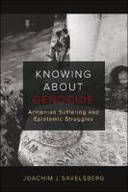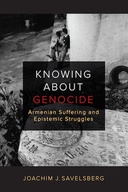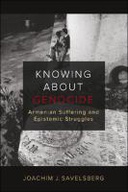Explore

This book is freely available in an open access edition thanks to TOME (Toward an Open Monograph Ecosystem)—a collaboration of the Association of American Universities, the Association of University Presses, and the Association of Research Libraries—and the generous support of the University of Minnesota. Learn more at the TOME website, available at openmonographs.org.
How do victims and perpetrators generate conflicting knowledge about genocide? Using a sociology of knowledge approach, Savelsberg answers this question for the Armenian genocide committed in the context of the First World War. Focusing on Armenians and Turks, he examines strategies of silencing, denial, and acknowledgment in everyday interaction, public rituals, law, and politics. Drawing on interviews, ethnographic accounts, documents, and eyewitness testimony, Savelsberg illuminates the social processes that drive dueling versions of history. He reveals counterproductive consequences of denial in an age of human rights hegemony, with implications for populist disinformation campaigns against overwhelming evidence.
This book is included in DOAB.
Why read this book? Have your say.
You must be logged in to comment.
Rights Information
Are you the author or publisher of this work? If so, you can claim it as yours by registering as an Unglue.it rights holder.Downloads
This work has been downloaded 553 times via unglue.it ebook links.
- 61 - mobi (CC BY) at Unglue.it.
- 64 - epub (CC BY) at Unglue.it.
- 57 - pdf (CC BY) at Unglue.it.
Keywords
- Asian history
- Boundaries
- China
- diaspora
- Genocide & War Crimes
- Himalayas
- History
- Humanities
- Jurisprudence & general issues
- Law
- Law & society
- Lhasa
- Middle East
- Middle Eastern History
- Other warfare & defence issues
- Political Science
- Regional & national history
- Society & Social Sciences
- Sociology
- Sociology & anthropology
- Sociology of Knowledge and Collective Memory
- Tibet
- Tibetan Muslims
- transnational
- Turkey & Ottoman Empire
- War crimes
- Warfare & Defence
Links
DOI: 10.1525/luminos.99web: http://www.luminosoa.org/site/books/m/10.1525/luminos.99/
Editions




